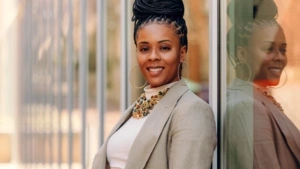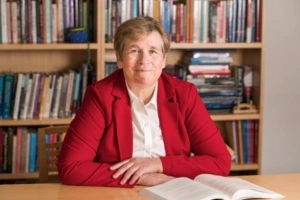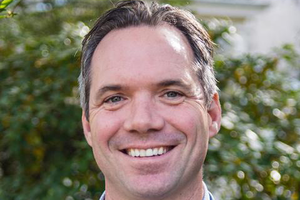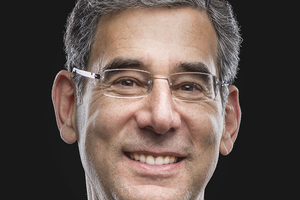Ericka Weathers, an assistant professor in Penn GSE’s Policy, Organizations, and Leadership division. Credit: Joe McFetridge for Penn GSE
Assistant Professor Ericka Weathers is one of five early-career researchers who have been selected for the new class of William T. Grant Scholars. With this award, the scholars execute rigorous five-year research plans that stretch their skills and knowledge into new disciplines, content areas, or methods.
For Weathers, who studies the causes and consequences of inequality in K–12 education as well as the effects of K–12 policies on student and school outcomes, this means the support to explore a new a topic of research: whether institutional responses to truancy reduce inequality in educational outcomes for Black and Latinx students.
“I am thrilled to receive this award,” said Weathers, who is only the third Penn GSE faculty member from Penn GSE to be selected for the scholars program. “The funding and the community of scholars and mentors will help me to expand my research in this area of truancy policy, particularly critical policy analysis using both qualitative and quantitative methods.”
Launched in 1982, the Scholars Program supports the professional development of promising early-career researchers. To date, the program has sponsored more than 200 talented researchers. As part of the Foundation’s commitment to supporting the career development of junior researchers, this year’s Scholars will be the first to receive an award of $425,000—an increase from the previous amount of $350,000.
Scholars are also given opportunities to further their research and professional development through annual retreats and workshops with their cohort, foundation staff, and other senior researchers.
“Being exposed to more critical communities that can help inform my knowledge in this area, working with my mentors, and having the William T. Grant Scholars network, [will] all be really helpful,” said Weathers, whose project will stretch her knowledge of critical methods. “Having that network is going to be key, where I can not only receive support, but also be of support to a community of scholars who are working to achieve similar goals [of] reducing racial inequality along different topic areas and research questions.”
Weathers hopes that in five years, her work will have shed light on how institutional responses to truancy shapes outcomes for students, in attendance and other areas, and that the field will have honed interventions and supports that address macro level barriers to student attendance and engagement.
“This year’s Scholars bring a diverse range of expertise and backgrounds, and their work will greatly contribute to our understanding of ways to address inequality and improve youth outcomes,” said Senior Program Officer Melissa Wooten, who manages the program. “We are excited for them to join our community of Scholars and look forward to supporting their growth as researchers.”
Media Inquiries
Penn GSE Communications is here to help reporters connect with the education experts they need.









